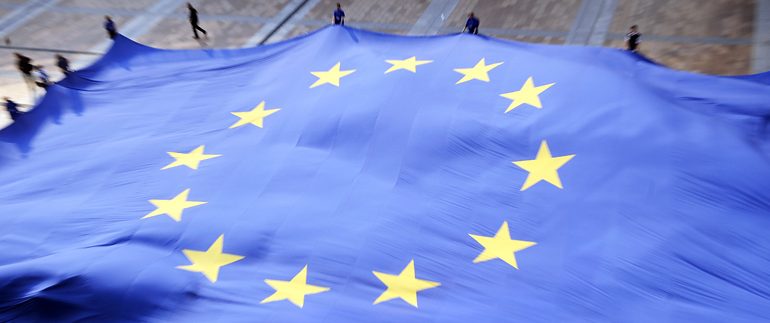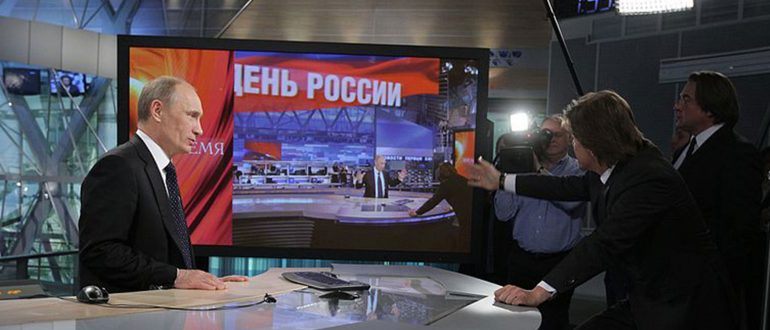Russia’s stealthy information revolution
From the Arab spring to the London riots- new media have been attributed an important influence on politics all over the world. In Russia, change is on its way as increased internet access is challenging the state control over the media.
1. Introduction
On 13 June 2000 Vladimir Gusinsky, one of the most prominent Russian oligarchs and owner of the media empire Media-MOST, was arrested on allegations of fraud. His arrest was quickly linked to the Kremlin’s attempts to regain control of the Russian media. Eventually the Russian leadership proposed a deal to the managers of NTV, the popular TV channel owned by Media-MOST:
“We were offered the dismissal of all the criminal cases against NTV and Gusinsky, if three conditions were met: One, that we stop our criticism of the war in Chechnya; two, that we no longer report on corruption in the Kremlin; and three, that we remove the puppet of Putin from Kukly.” (Viktor Shenderovich, cited in Burrett, 2009, pp. 75/76)
Kukly was one of the most popular NTV programmes at the time, a satire programme featuring puppets of celebrities and major politicians. In the following years the Russian leadership consolidated control over the mainstream media, notably all Russian television channels. Criticism and satire of the government have disappeared from national television.
When considering the effort Vladimir Putin’s administration put into asserting control over the media, banning criticism, reports on corruption and satire from the public sphere it seems like times could become busy again for the Kremlin media watchdogs. In the last ten years, Russia has seen a constant rise in internet use. Today, 60 million Russians are online, most of them at least once a day. The use of smartphones and mobile internet users is also rising (Lebedev, 2011). With more and more people having access to the internet, more Russians use it as a source of information, which isn’t available in the mainstream television. And more and more Russians use the internet to voice their own opinion of Vladimir Putin and his administration.
2. “RuNet”- a unique media space
The Russian internet, short Runet, is a unique space of the World Wide Web. With not many Russians being able to read and post in English it is a relatively closed of space, reserved for those who communicate in Russian. Russia is reported to have the “world’s most engaged social networking audience” (ComScore, 2011) and its internet is host to an active blogosphere that is one of the biggest in the world. This new media environment gives a space to publish the kind of information that was banned from Russian TV screens in the past ten years. Bloggers discuss and publicise opinions critical of the Kremlin. A study by the Berkman Center for Internet and Society in 2010 shows that there is active discussion in the Russian blogs representing different political opinions. Thereby Russians primarily make use of blogging platforms like LiveJournal or LiveInternet, which combine elements of blogging and social networking. In this way the blogosphere offers a platform to publish and discuss criticism.
A prominent example has been the political activist and blogger Aleksey Navalny. His blog has become one of the most popular and influential ones on Runet. Through his blog and videos published via YouTube, Navalny has uncovered several corruption scandals involving some of the biggest companies in Russia. One of the cases documented fraud worth US$4 billion in connection to a pipeline project of the Russian oil company Transneft. Interest in the case has been so high, to force Vladimir Putin to call for an investigation.
Satire is on the rise on the Russian internet. The YouTube channel of comedian “kamikadze_d” has become increasingly popular. Some of his videos have reached an audience of over a million and link Vladimir Putin, amongst other things, to building up his own empire and hiding his darkest secrets: the building up of a secret army of Putin clones, with President Dmitry Medvedev being only one example. A darker form of humour has been shown by the figure of “Mr Freeman”, whose dark analyses of modern day society has equally attracted millions of viewers. He recently published an “open letter to the President”, calling upon Medvedev to stop Putin from returning to the presidency. A different approach to Russia’s current prime-minister has been the creation “SuperPutin”, a series of comic strips ridiculing the self-staging of Vladimir Putin. Together with his partner Medvedev, who frequently appears as a bear, he is fighting all sorts of threats from terrorist to liberal zombies.
3. Is Russia on the brink of change?
Russia is poised before a new electoral cycle – the state Duma elections take place on 4 December 2011, the presidential elections in 4 March 2012 – the Kremlin is facing an election in which it doesn’t have a monopoly over information any more. Four years earlier, the authorities were still in control, and seemed able to use the free media space online themselves as a tool of propaganda to reach a younger audience (Fossato, Lloyd and Verkovsky, 2008). This year, ahead of the parliamentary elections, the situation seems to have changed. Oppositional discourse dominates the Russian blogosphere. This is due not only to wider access to internet resources, but also to new tactics of the opposition. Many oppositional figures have decided not to rally support for one particular party, but to call upon people to vote against United Russia, Putin’s party of power. “Vote for any party, but United Russia”, has become a popular electoral slogan. Further bloggers like Aleksey Navalny managed successfully to rebrand United Russia the “party of crooks and thieves”, a phrase that has caught on and is frequently used in the electoral campaign.
Campaigns like this will not truly contest the power of Vladimir Putin and his entourage. United Russia is still likely to win a clear parliamentary majority. Yet, strategists in the Kremlin will be worried. Fear is caused probably less by organised campaigns challenging its power, but by spontaneous events involving ‘ordinary citizens’. In the middle of November, only about two weeks ahead of the elections, Putin gave a speech after a martial arts fight in Moscow’s Olympic sport complex. To his surprise the audience greeted him with booing and jeering. A YouTube video of the event, which was uploaded shortly after, received almost 2 million hits in only 2 days and was discussed widely in Russian media online and offline. Videos like this do not fit into the Kremlin narrative portraying Putin as a strong, decisive and popular leader. The popularity of his party largely rests on Putin’s personal reputation- its dominance is therefore threatened if the peoples’ trust isn’t with him anymore.
The year 2011 has seen the importance of new media devices proved yet again, with Facebook, Twitter and alike playing decisive parts in revolutions and riots from Tunis and Cairo through to London. With its population starting to become web conscious, does the Russian regime face the threat of Revolution? Probably not.
While there is more critical information available, and more Russian use the new media, a larger proportion of Russian citizens remain politically apathetic. Living conditions under Putin have improved and are the main base for his popularity; with the experience of the chaotic 1990s on their minds, many Russians do not aspire to real democracy. On a smaller scale, the influence of the new media on Russian politics is already visible. Citizen initiatives using internet media manage to draw attention to their causes and influence policies. Yet, the new information sphere is not likely to challenge the big picture of Russian politics and lead to regime change. As internet use in Russia is around 43% of the Russian population there is however, still potential for development. Especially as young people become highly familiar with the new media, all trends indicate that access will spread further. Vladimir Putin’s regime will see its information monopoly challenged more and more, as the population learns how to obtain independent information. It is questionable what the regime’s answer will be. Maybe, Russia will see its own information revolution, but it is likely to be stealthy and nothing like the Arab spring.
By Niklas Kossow
Niklas Kossow is a finalist studying for a BA in European Social and Political Studies at University College London. In his studies, he focusses on international relations and politics, particularly in connection to Russia. He spent the third year of his studies researching his undergraduate dissertation in Moscow and at the Schoolof International Relations, St Petersburg State University.
Website/Video sources
Видеоблог kamikadze_d, 2011. Страшная тайна Путина. [online] Available at: <http://www.kamikadze-d.ru/ page/6/ > [Accessed: 21 January 2012].
Mr. Freeman, 2011. Mr. Freeman, part 1. [online] Available at: <www.mfo.me/videoobrascheniya/mr-freeman-part-1/> [Accessed: 21 January 2012].
Sergei Kalenik, 2011. Superputin. [online] Available at: <http://www.superputin.ru/> [Accessed: 21 January 2012].
iWattsZAP, 2011. Путина освистали после боя Емельяненко. Available at: <http://www.youtube.com/watch?v=armHReCvlP4> [Accessed 21 January 2012].
Sources of figures
Lebedev, P., 2011. Auditoriia Runeta: Tochki Rosta, [online] Moscow: FOM Public Opinion Foundation. Available at: <http://runet.fom.ru/Proniknovenie-interneta/10225> [Accessed: 26 November 2011].
ComScore, 2009. Russia has World’s Most Engaged Social Networking Audience. Press realease, 02 July 2009.
ICT Data and Statistics Division, International Telecommunication Union ITU, 2011. Free Statistics. [online] Available at: <http://www.itu.int/ITU-D/ict/statistics/> [Accessed: 09 November 2011].
Bibliography
Etling, B. et al., 2010. Public Discourse in the Russian Blogosphere: Mapping RuNet Politics and Mobilization, [online] Cambridge, MA: Berkman Center for Internet & Society. Available at: < http://cyber.law.harvard.edu/publications> [Accessed: 28 November 2011].
Fossato, F. and Lloyd, J., with Verkhovsky, A., 2008. The Web that Failed: How Opposition Politics and Independent Initiatives Are Failing on the Internet in Russia, [online] Oxford: Reuters Institute for the Study of Journalism. Available at: <http://reutersinstitute.politics.ox.ac.uk/index.php?id=248> [Acessed: 28 November 2011].
Alexanyan, K., Gorny, E. and Lapina-Kratasyuk, E., 2009. Russian Analytical Digest, No. 69: Internet Blogs, [online] Bremen: Forschungsstelle Osteuropa and Zurich: Center for Security Studies, ETH. Available at: < http://www.res.ethz.ch/analysis/rad/index.cfm> [Accessed: 28 November 2011].
Aron, L., 2011. Nyetizdat: How the Internet Is Building Civil Society in Russia, [online] Washington, D.C.: Russian Outlook, American Enterprise Institute for Public Policy Research. Available at: <http://www.aei.org/files/2011/06/28/RO-Spring-2011-g.pdf> [Accessed: 28 November 2011].
Burrett, T., 2009. The End of Independent Television? Elite Conflict and the Reconstruction of the Russian Television Landscape. In: Beumers, B., Hutchings, S. and Rulyova, Natalia, eds. 2009. The Post-Soviet Russian Media: Conflicting Signals. Abingdon: Routledge, pp.71-86.


